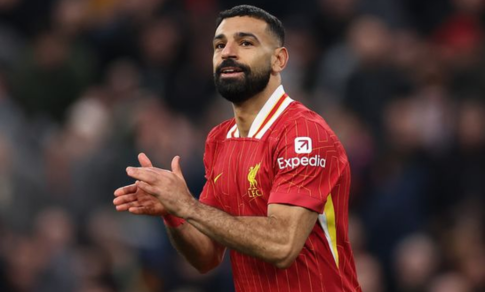Mohamed Salah, Liverpool’s iconic Egyptian forward, has recently hinted at his uncertain future with the club, sparking concerns among fans. Salah’s frustrations stem from the absence of a lucrative new contract, a situation tied to Fenway Sports Group's (FSG) strict policies on offering long-term deals to players over 30.
Despite Salah's immense contribution to Liverpool, the club’s owners appear unfazed, prioritizing financial prudence over sentimentality. This stance echoes past decisions by FSG, notably their controversial handling of baseball star Mookie Betts, highlighting their data-driven approach to sports management.
Salah, who is now 32, has been a cornerstone of Liverpool’s success since his arrival in 2017. With a stellar record of goals and assists this season, he remains one of the Premier League’s most impactful players. However, despite his performances, Salah finds himself in a precarious position as his contract nears expiration in June.
With only six months remaining on his deal come January, he will be free to negotiate with other clubs, including reported suitors from the Saudi Pro League, whose substantial financial offers Liverpool may struggle to match.
FSG's reluctance to offer Salah a contract extension reflects their broader strategy of prioritizing financial sustainability over individual player retention. This approach mirrors their earlier decision with Betts, who was traded from the Boston Red Sox to the Los Angeles Dodgers to avoid a substantial contract extension.
While Betts went on to achieve great success with his new team, his departure left Red Sox fans feeling betrayed. FSG’s focus on profitability and long-term growth has often clashed with the emotional bonds between players and fans, a dynamic now evident in Salah’s situation.
Salah’s discipline and professionalism have been central to his rise in European football. From his early days traveling hours to train in Cairo to his relentless work ethic at Liverpool, he has consistently demonstrated his dedication to the sport.
Even at 32, Salah’s form shows no significant decline, with his offensive output ranking among the best in the Premier League this season. Yet, FSG’s analytical approach appears to favor caution, viewing Salah’s age and injury history as potential risks for a long-term commitment.
While Salah remains focused on delivering results for Liverpool, he has made his dissatisfaction clear, noting the lack of offers to secure his future with the club. His recent comments after a match against Southampton hinted at his disappointment but also reaffirmed his commitment to professionalism.
Despite his contributions, FSG seems poised to let him leave rather than invest heavily in a player approaching his mid-30s, a move aligned with their history of prioritizing financial logic over emotional ties.
For Liverpool fans, the prospect of losing Salah is heartbreaking, as he has been a pivotal figure in the club’s recent success. However, for FSG, the departure of a beloved player is merely a business decision, much like Betts’ transfer in baseball.
As the owners continue to expand their portfolio, including potential investments in the NBA and NFL, Liverpool supporters may need to brace themselves for life without Salah, understanding that for FSG, passion often takes a back seat to profit.








ADD A COMMENT :